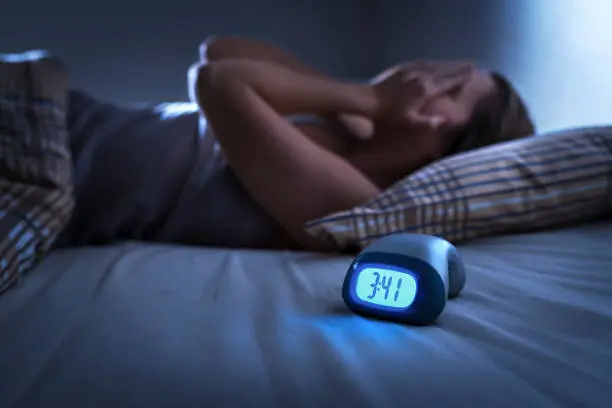In recent years, cannabidiol (CBD), one of the main compounds in cannabis plants, has attracted the interest of those seeking better sleep. Due to the lack of psychoactive effects of tetrahydrocannabinol or THC, CBD oil and other similar products are recommended as alternatives for inducing rest.
Now, these impacts are just beginning to be studied. Preliminary research suggests that it has the ability to regulate sleep cycles and promote depth. It will also reduce stress and anxiety.
Do you want to know more? Through a review of scientific research, we will provide you with detailed information on whether this substance can help you sleep better, as well as current considerations for its potential uses.

Research Article on CBD Improving Sleep
Medical marijuana, especially CBD or cannabidiol, has been promoted as an alternative therapy to combat insomnia. Through social networks and other virtual platforms, users have reported effects ranging from easier falling asleep to reduced nighttime awakenings.
Now, is there evidence to suggest that CBD can help you sleep better? The clinical research supporting its use for treating insomnia and other sleep disorders is limited.
A review published in European Psychiatry in 2022 determined that moderate to high doses of CBD can help improve insomnia. However, when combined with THC, they can lead to a decrease in slow wave sleep or deep sleep.
In a 2024 clinical trial published in the Journal of Clinical Sleep Medicine, researchers evaluated the effect of supplementing 150 milligrams of CBD per night compared to placebo.
The results showed that compared to other traditional treatment methods, there was almost no difference in cannabidiol. However, the group using it reported better health parameters, indicating its psychological impact.
Why can CBD Help You Sleep Better?
Specifically, CBD interacts with the endocannabinoid system (ECS), whose main function is to maintain homeostasis in the body. That is to say, the internal balance of all bodily systems.
There is evidence to suggest that CBD can help improve signal transduction in ECS. This plays a decisive role in increasing adaptive responses to stress and inhibiting related processes such as fear, anxiety, depressive behavior, and increased sensitivity to pain.
In addition, it has been observed that CBD has an inhibitory effect on the degradation of tryptophan induced by pro-inflammatory cytokines, indicating that it helps maintain and increase its levels. This amino acid is key to the production of serotonin and melatonin, two neurotransmitters associated with mood, mental health, and sleep.
Finally, cannabidiol can help treat other diseases related to sleep disorders, such as chronic pain, stress, anxiety, and depression. Improving these symptoms can help with rest.
The Risks and Potential Side Effects of CBD
Overall, CBD has good safety. Existing evidence suggests that it has good tolerance and low toxicity.
In some cases, especially when used at high concentrations, it may cause side effects:
- Fatigue;
- Diarrhea;
- Mouth parched and tongue scorched;
- Changes in weight or appetite.
When combined with alcohol and other substances that inhibit the central nervous system, CBD increases the risk of sedation and drowsiness. Hepatotoxic effects have also been observed in animal models, but more research is needed to determine whether it will cause the same effect in humans.
Drug Interactions
Due to the risk of interaction, it is not recommended to use CBD together with drugs. It has been observed that cannabidiol blocks the activity of a group of liver enzymes called cytochrome P450, which functions to break down toxins and active ingredients.
In other words, CBD can affect the metabolism of drugs in the liver, thereby increasing or decreasing the concentration of drugs in the body. In this way, the risk of side effects will increase.
Some interacting drugs are as follows:
- Warfarin;
- Levothyronine;
- Tricyclic antidepressant: Amitriptyline;
- Sedatives: benzodiazepines, phenobarbital, and morphine;
- Antiepileptic drugs: buxostat, carbamazepine, chlorpromazine, valproic acid, and topiramate.
There are many other possible interactions as well. Therefore, before using any form of CBD that is legal in your country/region, please be sure to consult your doctor.
How Much CBD Dose is Appropriate?
There is no established standard dosage for using CBD products to solve sleep problems. The effective dosage depends on factors such as weight, age, health status, and the body’s response to substances.
Only anecdotal evidence suggests a certain amount of positive impact. In addition, existing scientific research on dosage recommendations is limited. However, the public’s interest in trying this cannabinoid to treat insomnia and other sleep disorders continues to increase.
According to the information provided by the user, within the framework of authorized marketing countries, the common method of using CBD to improve sleep is through oil or tinctures. Their concentration range is very wide, from 50 milligrams to 3000 milligrams or more.
It must be considered that this difference is difficult to determine in each product, so we cannot clearly determine the content of a drop of oil. This will depend on the manufacturer.
What Types of Supplements are Still Available in CBD?
In addition to oil and tinctures, CBD is also present in other types of supplements. But the problem lies in the legal framework; This will vary according to the legislation of each state.
Edible CBD soft candy is very popular on the Internet. These are chewable tablets of various flavors, with concentrations of 10 milligrams, 25 milligrams, 50 milligrams, or higher.
The dosage of gummies absorbed through the intestine is still uncertain. In addition, for many countries, CBD as a food or only for oral consumption is illegal. This also includes foods containing cannabidiol, such as cookies, chocolate, and coffee.
CBD can also be used in external creams and lotion. Although this is its most authorized and legal sales method in almost all countries, there is no evidence to suggest that it can improve sleep.

Concerns About CBD Marketing
Unclear dosage and illegal presentations on the Internet are a matter of concern. At present, the quality, effectiveness, and safety of most CBD products on the market are not guaranteed. Many products are not regulated or approved by the US Food and Drug Administration (FDA) or the European Medicines Agency (EMA).
This lack of regulation poses challenges for finding high-quality products and obtaining compliant presentations for users. The problem is evident in the analysis of commercial CBD samples such as oils, tinctures, and e-cigarette liquids.
The main recommendation is to search for CBD commercial brands with a good reputation and only sell products authorized by the laws of the country where they operate.
What to Watch Out for When Using CBD for Sleep?
Advertisements and testimonials claiming CBD is the “solution for better sleep” or “natural remedy for insomnia” are not uncommon. The fact is, these and other claims remain unsupported by scientific evidence.
While there are preliminary studies reporting positive effects of CBD on sleep, especially supporting the treatment of underlying conditions that affect rest, such as chronic pain, anxiety, stress, and depression. More concrete evidence is needed before definitive conclusions can be drawn.
Furthermore, we cannot ignore that there is still insufficient information regarding the long-term safety of CBD. It is currently unclear the exact dosage and in what form it can most promote rest.
CBD products on the market are poorly regulated and may contain THC or other cannabis ingredients. Therefore, it is necessary to only attract reliable brands.
For most people, CBD has good tolerance and low toxicity. However, it still cannot avoid causing adverse reactions and interactions with drugs. It is only recommended to use under professional supervision.
Finally, you should be aware of other safe and effective methods for treating insomnia and sleep disorders. Relaxation techniques, sleep hygiene habits, cognitive reconstruction, and behavioral therapy are clear examples.
